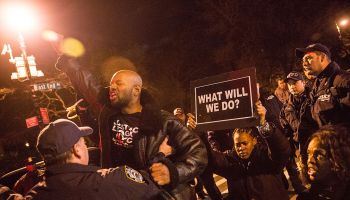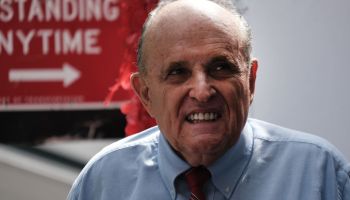SANAA, Yemen— Anwar al-Awlaki, a U.S.-born Islamic militant cleric who became a prominent figure in al-Qaida’s most active branch, using his fluent English and Internet savvy to draw recruits to carry out attacks in the United States, was killed Friday in the mountains of Yemen, American and Yemeni officials said.
Feds: Massachusetts Man Planned To Blow Up US Buildings
U.S. Tells Court Bin Laden Photos Must Stay Secret
The Yemeni government and Defense Ministry announced al-Awlaki’s death, but gave no details. A senior U.S. official said American intelligence supports the claim that he had been killed. The official spoke on condition of anonymity to discuss intelligence matters.
Yemeni security officials and local tribal leaders said the was killed in an airstrike on his convoy that they believed was carried out by the Americans. They said pilotless drones had been seen over the area in previous days.
Al-Awlaki would be the most prominent al-Qaida figure to be killed since Osama bin Laden’s death in a U.S. raid in Pakistan in May. In July, U.S. Defense Secretary Leon Panetta said the Yemeni-American was a priority target alongside Ayman al-Zawahri, bin Laden’s successor as the terror network’s leader.
The 40-year-old al-Awlaki had been in the U.S. crosshairs since his killing was approved by President Barack Obama in April 2010 — making him the first American placed on the CIA “kill or capture” list. At least twice, airstrikes were called in on locations in Yemen where al-Awlaki was suspected of being, but he wasn’t harmed.
Al-Awlaki, born in New Mexico to Yemeni parents, was believed to be key in turning al-Qaida’s affiliate in Yemen into what American officials have called the most significant and immediate threat to the Untied States. The branch, led by a Yemeni militant named Nasser al-Wahishi, plotted several failed attacks on U.S. soil — the botched Christmas 2009 attempt to blow up an American airliner heading to Detroit and a foiled 2010 attempt to main explosives to Chicago.
Known as an eloquent preacher who spread English-language sermons on the internet calling for “holy war” against the United States, al-Awlaki’s role was to inspire and — it is believed — even directly recruit militants to carry out attacks.
U.S. officials believe he went beyond just being an inspiring spiritual leader to become involved in operational planning for al-Qaida in the Arabian Peninsula, as the Yemen branch is called. Yemeni officials have said al-Awlaki had contacts with Umar Farouk Abdulmutallab, the accused would-be Christmas plane bomber, who was in Yemen in 2009. They say the believe al-Awlaki met with the 23-year-old Nigerian, along with other al-Qaida leaders, in al-Qaida strongholds in the country in the weeks before the failed bombing.
In New York, the Pakistani-American man who pleaded guilty to the May 2010 Times Square car bombing attempt told interrogators he was “inspired” by al-Awlaki after making contact over the Internet.
























